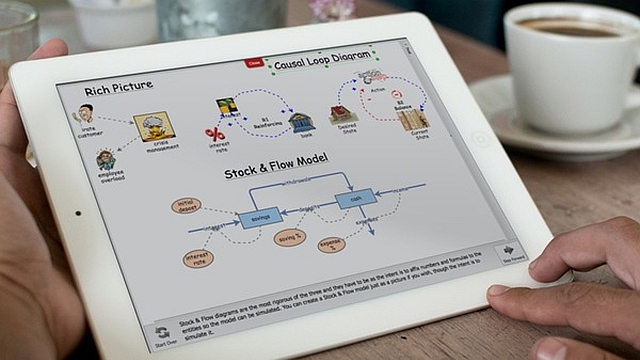
Exploring the science of complexity series (part 26): Conclusions – What kinds of practical uses are there for complexity science in international aid?
This article is part 26 of a series of articles featuring the ODI Working Paper Exploring the science of complexity: Ideas and implications for development and humanitarian efforts.
Each of … [the] concepts [in this series] has relevance for those working in social, economic and political realms. We see much potential value in exploring these concepts in more depth in international aid policy and practice. In our view, it is possible to accommodate qualitative approaches of complexity as a set of metaphors to guide thinking and see complexity as a rigorous approach to mathematically based modelling. As has been mentioned throughout the … [series], qualitative and quantitative approaches have a lot more in common when seen using the light of complexity; aid analysts need to seek a qualitative understanding of quantitative relationships.
The concepts can be used individually, as has been shown; for example, we might use ‘space of the possible’ to understand how an economy has changed over time and the scope for future changes; we could use adaptive agents to understand how different actors trade off altruism and competition in humanitarian crises, and what incentive structures would lead to optimal cooperation in community-based natural resource management. We might use the notion of initial conditions to try and better understand how the history of a particular region continues to shape it today.
The concepts can be used individually to reflect on the overall system – for example, is the aid system adequately coupled with beneficiaries of the system? how could the interdependencies be increased? – or at specific sub-systems – for example, is organisation X working to facilitate self-organisation at different levels of the system? They can be used to review the success or failure of reform efforts – are change efforts taking sufficient account of ideas such as sensitive dependence on initial conditions and nonlinearity?
The concepts can be used ex-ante, to ensure that the principles for programme design or the principles of a change initiative take into account the notion and implications of complexity. The concepts can be used ex-post to understand change processes – for example, we have used them to analyse the failure of organisational knowledge strategies and the successful emergence of global communities of practice.
All of the above highlights the fact that the concepts can be used in a highly flexible manner – for example, in combination or individually, to augment existing models or frameworks or as a framework in their own right.
As we highlighted in the introduction, this has been an exploration, and an initial one at that. We know that there is much more work still to do. Future collaborative work in these areas will prove especially useful in identifying the range and scope of these concepts and ideas. More shared thinking around potential practical applications is the ideal way to extend the potential horizons. We are already exploring the scope for a number of these ideas and implications to be applied in settings of relevance to our ongoing work, including evidence-based policy making, organisational learning initiatives, monitoring and evaluation, network building, organisational innovation, aid leadership, humanitarian response coordination, aid effectiveness and others. We are also planning to produce a follow up publication – working title: Applying the Science of Complexity1 – which will build on the current exploration with more details of specific methodologies and approaches, their benefits and challenges, which will be aimed at those interested in apply these ideas and concepts in earnest.
Next part (part 27): Concluding remarks – Our View: Champions, pragmatists or critics?
Article source: Ramalingam, B., Jones, H., Reba, T., & Young, J. (2008). Exploring the science of complexity: Ideas and implications for development and humanitarian efforts (Vol. 285). London: ODI. (https://www.odi.org/publications/583-exploring-science-complexity-ideas-and-implications-development-and-humanitarian-efforts). Republished under CC BY-NC-ND 4.0 in accordance with the Terms and conditions of the ODI website.
Header image source: qimono on Pixabay, Public Domain.
Notes:
- Two new series featuring the follow-up publications, which are titled A guide for planning and strategy development in the face of complexity and A guide to managing in the face of complexity, will follow this current series. ↩






